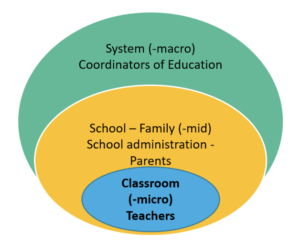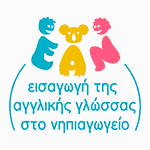The introduction of English in preschool education is an important investment when it comes to the development of 21st century skills. Communicating in the L1, as well as in other languages in a contemporary pluricultural society, is the key to learning, and to personal and professional development. It is interwoven with important benefits as it is a “skill” for lifelong learning and vocational training. Quality education at preschool level lays the foundation for future success and has long-term benefits for individuals and society at large. Language education in preschool is linked to acquisition regarding language development, which consolidates attitudes and skills for holistic development and subsequent school success. The implementation of English at the preschool level is furthermore connected with the development of the identity of a world citizen and helps in the formation of a positive attitude towards learning foreign languages, an important skill on a personal and professional level.
Besides the benefits of the holistic development of children, introducing English in the preschool promotes the “continuity” of learning experiences from preschool to preschool, since learning English as a foreign language is introduced in the first year of preschool, and thus a smooth transition for all learners needs to take place. At the same time, training for both preschool and EFL teachers is carried out on topics related to quality education in preschools and the implementation of English as an interdisciplinary approach to knowledge. This is achieved through processes that depict the current perception of professional lifelong learning and foster distance learning. Training educators on these issues adds to the professional development of educators but also promotes those skills that form the profile of a 21st century educator.
The programme refers to the development of a pedagogical model for the implementation of English as a foreign language in the preschool, which involves appropriate and interdisciplinary activities in English that are embedded in the preschool curriculum. Therefore, the new language is not viewed as a distinct learning subject but rather as a functional part of the preschool programme. The English language is embedded in the preschool curriculum in a natural, unforced way, and is not an isolated or separate learning and cognitive objective. The framework of cooperation created between English and preschool educators is an innovation at the preschool level and also at all levels of education (not just in Greece) when it comes to educational practices. Such a framework refers to the theoretical and practical level only in the framework of inclusive education with minimal tangible and scientifically substantiated examples available.
The methodology developed by the programme introduces intercultural and plurilingual communication in preschool education, thus creating the conditions for a pedagogical approach open to the local community. Family and community resources are utilized, since the approach towards the English language is based on the framework of local needs and abilities, placing emphasis on the value of cultural aspects and children’s pre-existing knowledge. The cooperation among all those involved in the learning process is of vital importance for the development of intercultural awareness as well as for inclusive education, which can set a new “example” for foreign language learning and teaching at all levels of education.
The programme aims to improve the quality and effectiveness of the educational system, and the lifelong learning process. In particular, it aims to reduce drop out rates while the programme also strives to promote equal access to quality preschool, primary and secondary education. This will lead to an increase of schools that function in the framework of the New School and promote quality in preschool, primary and secondary education.
The above-mentioned aims can be achieved, particularly since the training session for the implementation of English is directed towards (a) all English language educators involved in the programme of the implementation of the English language in preschools, either permanent or substitute teachers (b) all preschool educators in Greek public preschools, working either as permanent or substitute teachers, and (c) the Coordinators of Education who are in charge of the pedagogical support of the preschool and English teachers. The utilization of modern digital tools and the creation of a website where teaching materials are uploaded, will function as a portal for information, interaction and teacher training and ensure the quality of the education offered in preschools. This enables the creation of a community of practice at a national level.
The training programme as well as its systematic supervision and evaluation refers to all levels of organisation of the preschool as it takes into account the running of the school on a nano-level (preschool classroom), micro-level (school unit), mid-level (administration and educational executives), and macro–level (Regional Directorates of Greece).
The summative evaluation of the programme, based on predefined indicators and success criteria ensures the quality of lifelong learning and educational material along with the promotion of quality preschool education.

To support the programme, research tools are designed during the first year of the implementation so as to investigate and cater for needs and also demonstrate results of the intervention. Pre and post data will be collected from stakeholdres in Greece ensuring a sufficient sample size. Mixed methodology will be followed, with qualitative and quantitative analyses of the data collected. The results will be utilized for the formative assessment of the training material and the educational material too, which will be developed throughout the duration of the programme.
